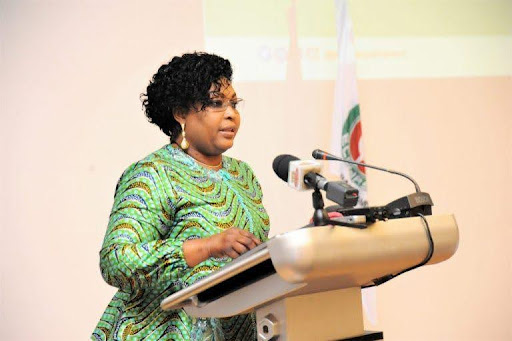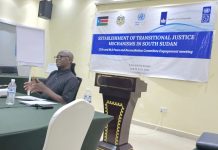By: Kebba AF Touray
The Research Unit of the Directorate of Parliamentary Affairs and Research of the ECOWAS Parliament has revealed that according to the World Bank Migration and Remittances Face book 2023, West African migrants send home an estimated US$25 Billion (approximately one trillion and seven hundred billion Dalasi) annually.
The ECOWAS Parliament made this disclosure in its 2024 report of the Research Unit of the Directorate of Parliamentary Affairs and Research.
The report was tabled before regional lawmakers at the ongoing first ordinary session of the Community Parliament, on Saturday, 6 July 2024, in Abuja, Nigeria.
According to the report, it is important to note that remittances from migrants are vital for the economies of West African countries.
“These funds support families, contribute to poverty reduction, and foster local investments. According to the World Bank Migration and Remittances Facebook 2023, remittances play a crucial role in the economies of West African countries, with migrants sending back an estimated $25 billion annually, represents a significant portion of the GDP for countries like Senegal and Ghana,” said the report.
The report indicated that the departure of educated and skilled youth leads to a significant loss of human capital, hindering economic development and innovation in home countries.
The migration of young people, according to the report, also alters demographic structures, often leaving behind a population skewed towards the elderly and children, which can strain social services and community structures.
“At the humanitarian level, the dangerous journeys undertaken by migrants expose them to numerous risks, including human trafficking, exploitation, and death (an estimated 5,000 migrant deaths – IOM 2023 figures),” the report says.
The report went on to state that while migrants contribute to cultural exchange and diversity in host countries, they also face significant challenges in terms of integration, discrimination and legal hurdles in their destination countries.
The report stressed that migration of West African youth across the seas, particularly towards Europe, has become a prominent issue over the past decade.
As outlined in the report, the movement is influenced by a combination of economic, educational, political and environmental factors
The report conveyed that understanding the current state of youth migration, its impact on the region, and addressing the underlying causes are crucial for developing effective policies.
The report added: “That makes migration, particularly youth migration, a case for deliberation by the representatives of the people of West Africa”.
The report concluded that it should be stressed that youth migration across the seas from West Africa is a complex issue with deep-rooted causes and far-reaching impacts.
“Addressing this phenomenon requires comprehensive strategies that tackle the underlying drivers of migration, support safe and legal migration channels, and mitigate the adverse effects on both migrants and their home countries,” said the report.
The report averred that in doing so, the ECOWAS Parliament has a critical role to play in shaping policies that balance the need for economic mobility with the protection and development of the youth population.
The Key points for parliamentary debate according to the report are as follows;
1. Economic Development and Job Creation, in view of how Member States of the Community can create more employment opportunities to reduce the economic push factors driving youth migration across the seas;
2. Educational Investment, on what measures can be taken to improve the quality and accessibility of education, vocational and technical training within West Africa;
3. Conflict Resolution and Security, with regards to what strategies should be implemented to address political instability and conflict, thereby reducing forced migration;
4. Climate Adaptation and Environmental Sustainability, on how countries can develop and implement effective climate adaptation strategies to mitigate environmental migration; and
5. Migration Policy and International Cooperation, on how existing regional migration policies can be reviewed and adapted to meet current exigencies in international cooperation to ensure safe, legal and orderly migration.



















